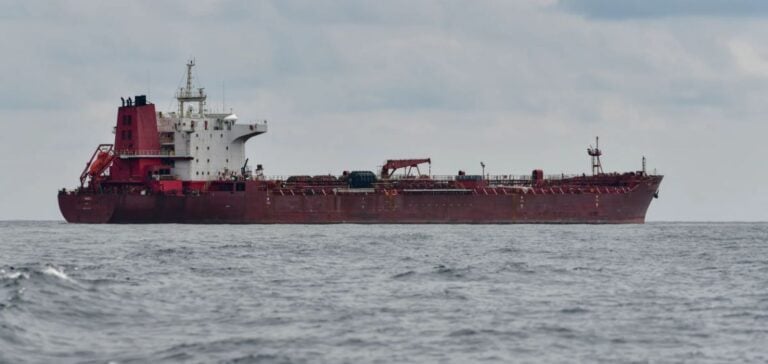Depuis le début de la guerre en Ukraine, le rôle des « shadow tankers », ces pétroliers clandestins transportant du pétrole russe et iranien en contournant les sanctions, suscite de vives préoccupations. L’Ukraine a récemment identifié 238 de ces navires opérant dans l’ombre, représentant 17 % de la flotte mondiale de pétroliers en termes de tonnage de port en lourd.
Selon les renseignements ukrainiens, ces navires permettent aux « États agresseurs » de générer des revenus substantiels malgré les sanctions internationales. En 2023, la Russie aurait ainsi engrangé 188 milliards de dollars grâce à ses exportations de pétrole, tandis que l’Iran en aurait retiré 53 milliards. Ces revenus, essentiels pour soutenir leurs économies et financer leurs stratégies militaires, sont rendus possibles par une flotte composée majoritairement de vieux navires mal entretenus, battant pavillon de complaisance.
Des pratiques maritimes inquiétantes
Les « shadow tankers » utilisent des tactiques variées pour échapper aux contrôles. Ils dissimulent l’origine de leurs cargaisons, pratiquent des transferts de pétrole en haute mer et empruntent des routes dangereuses sans respect des réglementations locales ou internationales. Parmi les 238 navires identifiés, 218 transportent du pétrole russe et 51 sont spécialisés dans le pétrole iranien, certains opérant pour les deux pays.
Ces pratiques ne sont pas sans conséquences. Depuis 2022, plus de 50 incidents impliquant ces navires ont été recensés, notamment dans des zones à fort trafic comme le détroit du Danemark et les eaux arctiques. Ces incidents soulignent les risques d’accidents majeurs, tant sur le plan environnemental qu’économique, pour les pays côtiers.
Des sanctions insuffisantes
Malgré ces alertes, seulement 134 des « shadow tankers » sont actuellement inscrits sur les listes noires des pays occidentaux. L’Ukraine exhorte la communauté internationale à renforcer les mesures punitives, notamment via des sanctions secondaires visant les propriétaires, les opérateurs et les gestionnaires de ces navires. D’autres actions recommandées incluent le blocage des passages maritimes internationaux pour ces navires, l’interdiction des transferts de cargaisons en haute mer et une coopération accrue entre les États.
En réponse, l’Union européenne (UE) a adopté un 15ᵉ paquet de sanctions contre la Russie le 11 décembre, incluant des mesures élargies contre ces navires. Selon des sources, ce nouveau paquet pourrait ajouter entre 52 et 79 pétroliers à la liste noire. Cependant, ces mesures restent limitées face à l’ampleur du problème. Une analyse récente indique que près de 586 pétroliers transportant du pétrole russe et 155 navires dédiés au pétrole iranien opèrent malgré les sanctions.
Des importateurs clés peu concernés
L’efficacité des sanctions est également limitée par la volonté des principaux importateurs de pétrole russe et iranien d’accepter ces cargaisons. L’Inde, premier acheteur de brut russe, et la Chine, principal importateur de pétrole iranien et second acheteur de brut russe, continuent d’utiliser ces navires pour sécuriser leur approvisionnement énergétique.
Les autorités ukrainiennes appellent à une mobilisation internationale accrue pour freiner ces activités maritimes clandestines. Outre les risques économiques et environnementaux, ces navires mettent en lumière les failles du système actuel de sanctions et les défis qu’il reste à relever pour garantir leur efficacité.






















